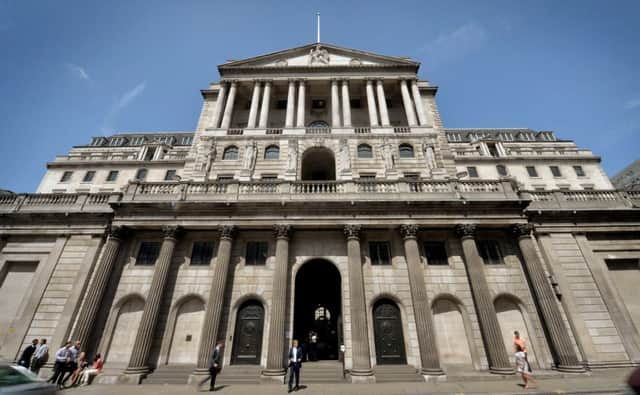Martin Flanagan: Hopes for interest rate rise to be disappointed


Savers have borne a lot of the pain of Britain avoiding a depression following the financial crash, but a spike in inflation to still low levels is unlikely to finally get them out of a hole.
Yesterday’s data produced a knee-jerk boost for sterling in the currency markets, but the response still looks premature and somewhat excitable.
Advertisement
Hide AdAdvertisement
Hide AdEven with the sharp inflation rise, it is all relative, and the price index is still comfortably below the Bank’s 2 per cent mid-term target. The odds remain much in favour of this target not being met until the back end of 2017. There is simply no need for precipitate action on the rate rise front.
The Bank’s monetary policy committee (MPC) looks at things in the round in their deliberations, and the stronger than expected inflationary pressures in March – largely rises in air fares and clothing prices offset by falling food prices – are outweighed by the wider global and UK economic headwinds.
The emerging markets, and China, in particular, are not out of the woods; the oil price looks in remission; commodities are patchy; the eurozone and the British EU referendum vote cloud the macro picture.
The IMF has just downgraded the UK’s growth forecast from 2.2 per cent to 1.9 per cent for 2016. Governor Mark Carney and his MPC colleagues are wary of turning a slowdown in UK economic growth into anything approaching stagnation. Fears by small businesses that the latest inflation data could see any monetary tightening by the BoE accelerated look as groundless as savers’ hopes for that outcome.
The BoE will also be cognisant that even with the rise in prices last month inflation remains low enough to support consumer spending. This is key, as with manufacturing in the doldrums and business confidence surveys their weakest for some time, it remains a consumer-led recovery in the UK.